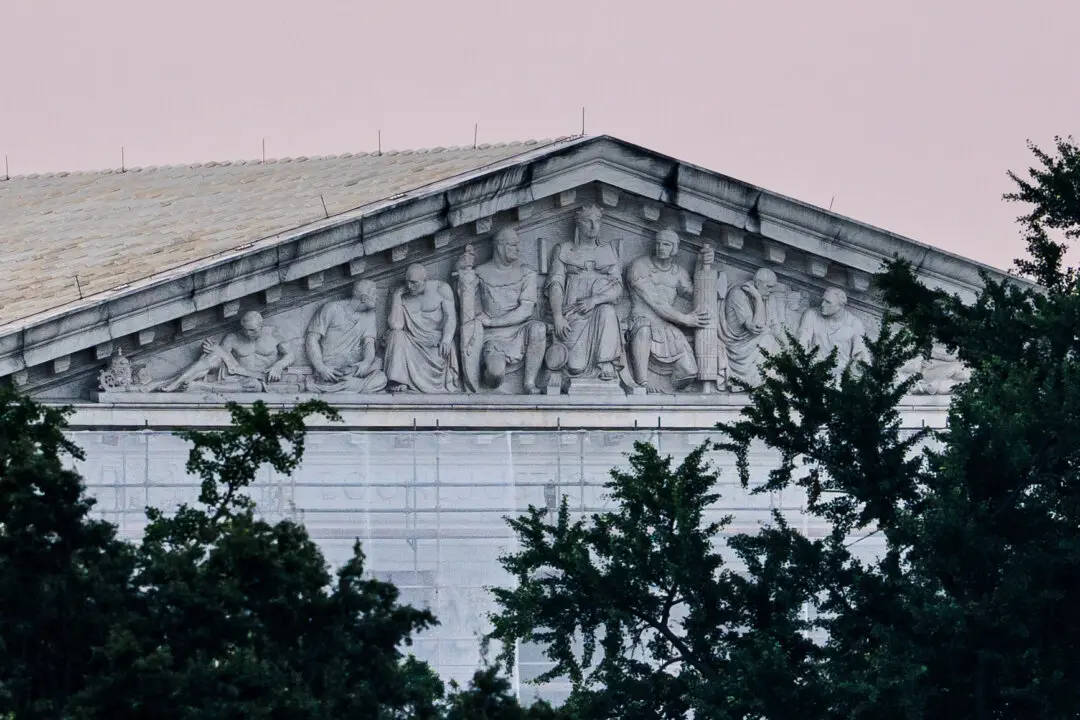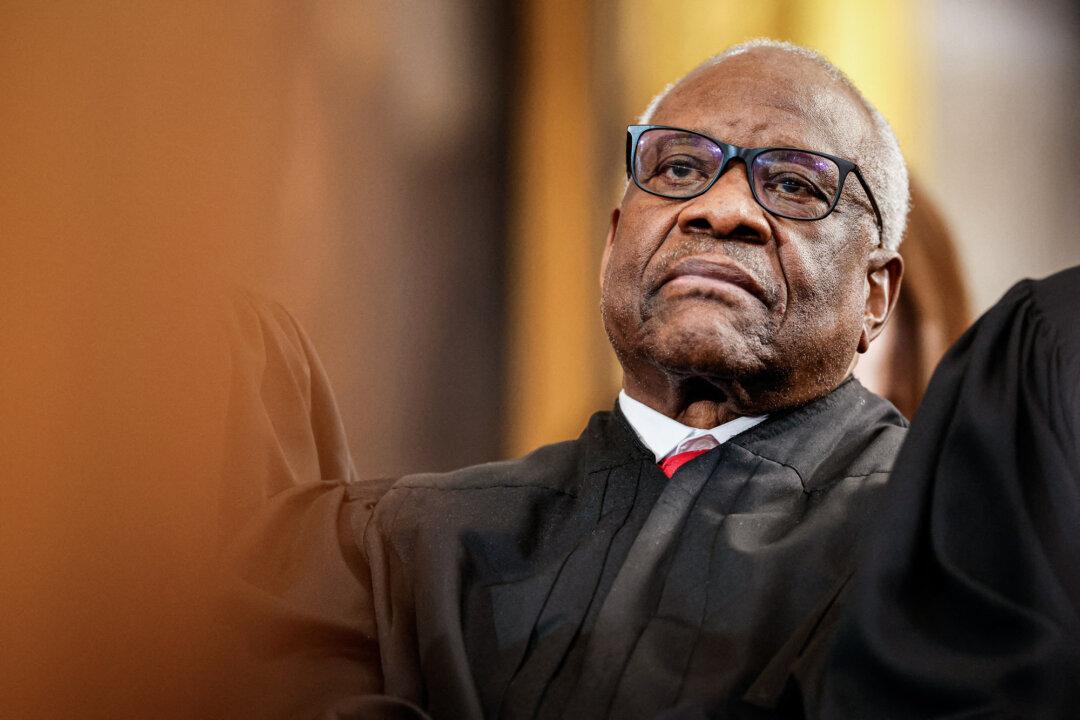Commentary
On Aug. 23, 1984, at an ecumenical prayer breakfast in Dallas, then-President Ronald Reagan said (pdf), “Without God, there is no virtue because there is no prompting of the conscience. … Without God, there is a coarsening of the society. And without God, democracy will not and cannot long endure. If we ever forget that we are one nation under God, then we will be a nation gone under.”





